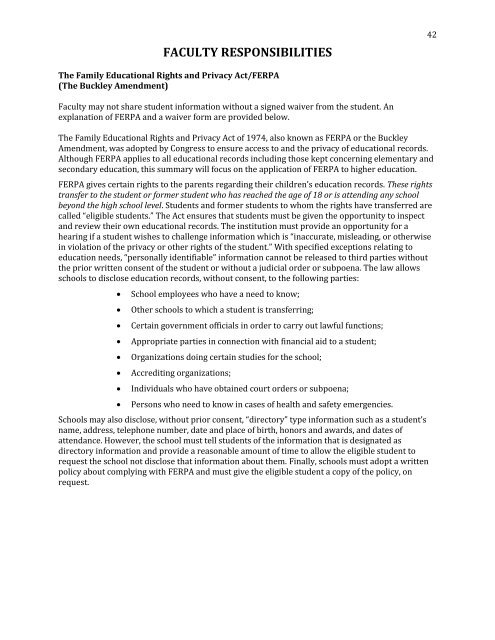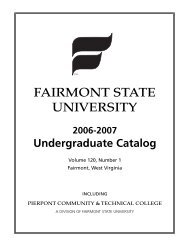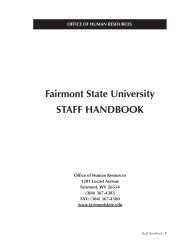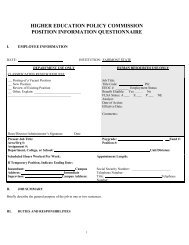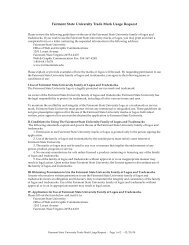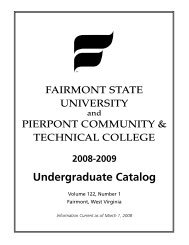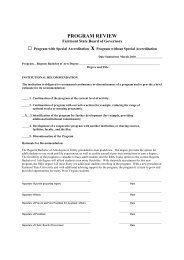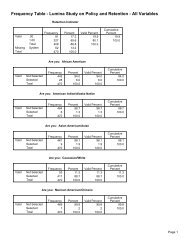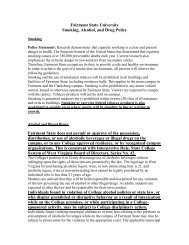Faculty Handbook - Fairmont State University
Faculty Handbook - Fairmont State University
Faculty Handbook - Fairmont State University
You also want an ePaper? Increase the reach of your titles
YUMPU automatically turns print PDFs into web optimized ePapers that Google loves.
FACULTY RESPONSIBILITIES<br />
42<br />
The Family Educational Rights and Privacy Act/FERPA<br />
(The Buckley Amendment)<br />
<strong>Faculty</strong> may not share student information without a signed waiver from the student. An<br />
explanation of FERPA and a waiver form are provided below.<br />
The Family Educational Rights and Privacy Act of 1974, also known as FERPA or the Buckley<br />
Amendment, was adopted by Congress to ensure access to and the privacy of educational records.<br />
Although FERPA applies to all educational records including those kept concerning elementary and<br />
secondary education, this summary will focus on the application of FERPA to higher education.<br />
FERPA gives certain rights to the parents regarding their children’s education records. These rights<br />
transfer to the student or former student who has reached the age of 18 or is attending any school<br />
beyond the high school level. Students and former students to whom the rights have transferred are<br />
called “eligible students.” The Act ensures that students must be given the opportunity to inspect<br />
and review their own educational records. The institution must provide an opportunity for a<br />
hearing if a student wishes to challenge information which is “inaccurate, misleading, or otherwise<br />
in violation of the privacy or other rights of the student.” With specified exceptions relating to<br />
education needs, “personally identifiable” information cannot be released to third parties without<br />
the prior written consent of the student or without a judicial order or subpoena. The law allows<br />
schools to disclose education records, without consent, to the following parties:<br />
<br />
<br />
<br />
<br />
<br />
<br />
<br />
<br />
School employees who have a need to know;<br />
Other schools to which a student is transferring;<br />
Certain government officials in order to carry out lawful functions;<br />
Appropriate parties in connection with financial aid to a student;<br />
Organizations doing certain studies for the school;<br />
Accrediting organizations;<br />
Individuals who have obtained court orders or subpoena;<br />
Persons who need to know in cases of health and safety emergencies.<br />
Schools may also disclose, without prior consent, “directory” type information such as a student’s<br />
name, address, telephone number, date and place of birth, honors and awards, and dates of<br />
attendance. However, the school must tell students of the information that is designated as<br />
directory information and provide a reasonable amount of time to allow the eligible student to<br />
request the school not disclose that information about them. Finally, schools must adopt a written<br />
policy about complying with FERPA and must give the eligible student a copy of the policy, on<br />
request.


